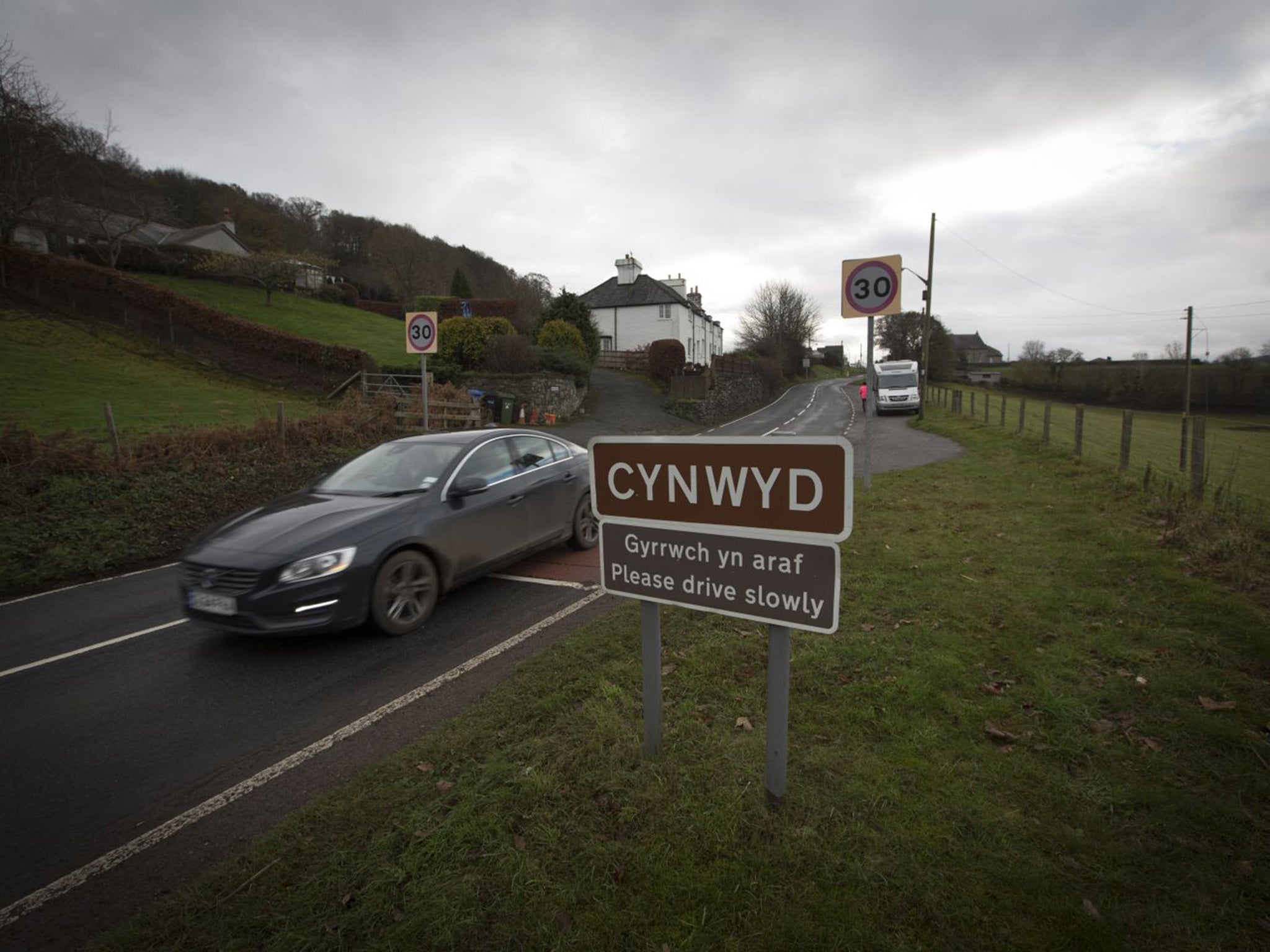Cynwyd: Town in Wales becomes new frontline in guerrilla war over future of the Welsh language
It began with an anonymous complaint and has turned into a national debate

The village of Cynwyd is a picture of calm as two women stand chatting at a bus stop and a coalman makes a delivery at one of the whitewashed cottages. But all is not quite as it seems in this normally peaceful haven in the rolling Denbighshire countryside. Cynwyd has become the new frontline in a guerrilla war over the future of the Welsh language.
An ombudsman has been forced to intervene after a villager named in an official report simply as Mrs X complained that the community council was publishing “Welsh only” notices and failing to supply an English translation of its agenda papers.
Now the Welsh-speaking councillors have found themselves on the receiving end of a salvo from the official, who has accused them of “letting down” local people and refusing to accept his “entirely reasonable” recommendation to publish the documents in both languages.
The linguistic battle has become a major talking point far beyond the lanes of Cynwyd, home to fewer than 550 people. A Welsh language society has now taken a parish council in Penarth to task over its English-only paperwork.
There is only one topic on people’s lips outside Cynwyd’s only shop, where a notice board displays an agenda, in Welsh, for the village council’s next meeting. And most people who speak to The Independent favour the bilingual approach.

“This used to be a Welsh village, but times change,” says 70-year-old Mair Davies, whose first language is Welsh. “There are lots of English-speakers here, and both languages should be used, unless people want to learn to speak Welsh.”
Jody Jones, 24, who is walking to the shop with her children said: “I’m Welsh, but not everyone is a Welsh speaker.”
Her friend Lowri Jones, 31, said: “Everything has to be bilingual. That’s the way it is. It would be a lot easier and save the argument. There are more important things to worry about.”
Recent figures suggest the mother tongue is holding its ground anyway. Just this week, a survey found that the number of fluent Welsh speakers in Wales has remained stable over the last decade.
“It would be a daft idea to have everything only in Welsh,” says the coalman Trevor Owens as he lifts a sack on to his shoulders and heads towards a cottage door.
“There are too many English speakers around here. It would be wrong to exclude them. If you make yourself too exclusive, you disappear.”
Dolly Nuttall, 62, from the Isle of Man, who moved to the village some years ago, agrees. “We have our own Manx language in the Isle of Man, which is dying and people should preserve it. Welsh needs to be kept alive. I’d like to learn it myself, but the notices should be bilingual for those who don’t speak it.”
The community council is yet to reply formally to the ombudsman’s final report – because members say he is yet to send a copy in Welsh.
The council said in response to his draft report last month that its position remained unchanged since the “onset of these tedious, protracted discussions”. It says Mrs X is a repeat complainer.
“We emphatically say that Cynwyd Community Council believes that it has no case to answer. The complaint is without foundation, time wasting, a waste of money and an incorrect use of the ombudsman,” it says.
Councillors say the language of the council is Welsh, most of its notices are bilingual, although the agenda is Welsh-only “at the moment”. They say they offer an in-house translation service, but have no funds for professional translators.
“If any members of the public actually attend a meeting – there never are – they could bring their own translator if they wished,” the committee adds in a letter.
The council’s clerk Alwyn Jones Parry, 73, a retired headteacher, speaks to The Independent while doing some gardening at his bungalow. He says the council has received 21 emails in support.
“We now have to decide whether to accept what the ombudsman says,” he said. “This has gone viral. This is not just about the village, it’s about the whole of Wales.”
“We do like the English,” he adds with a smile, “except when they beat us at rugby.”
Join our commenting forum
Join thought-provoking conversations, follow other Independent readers and see their replies
Comments